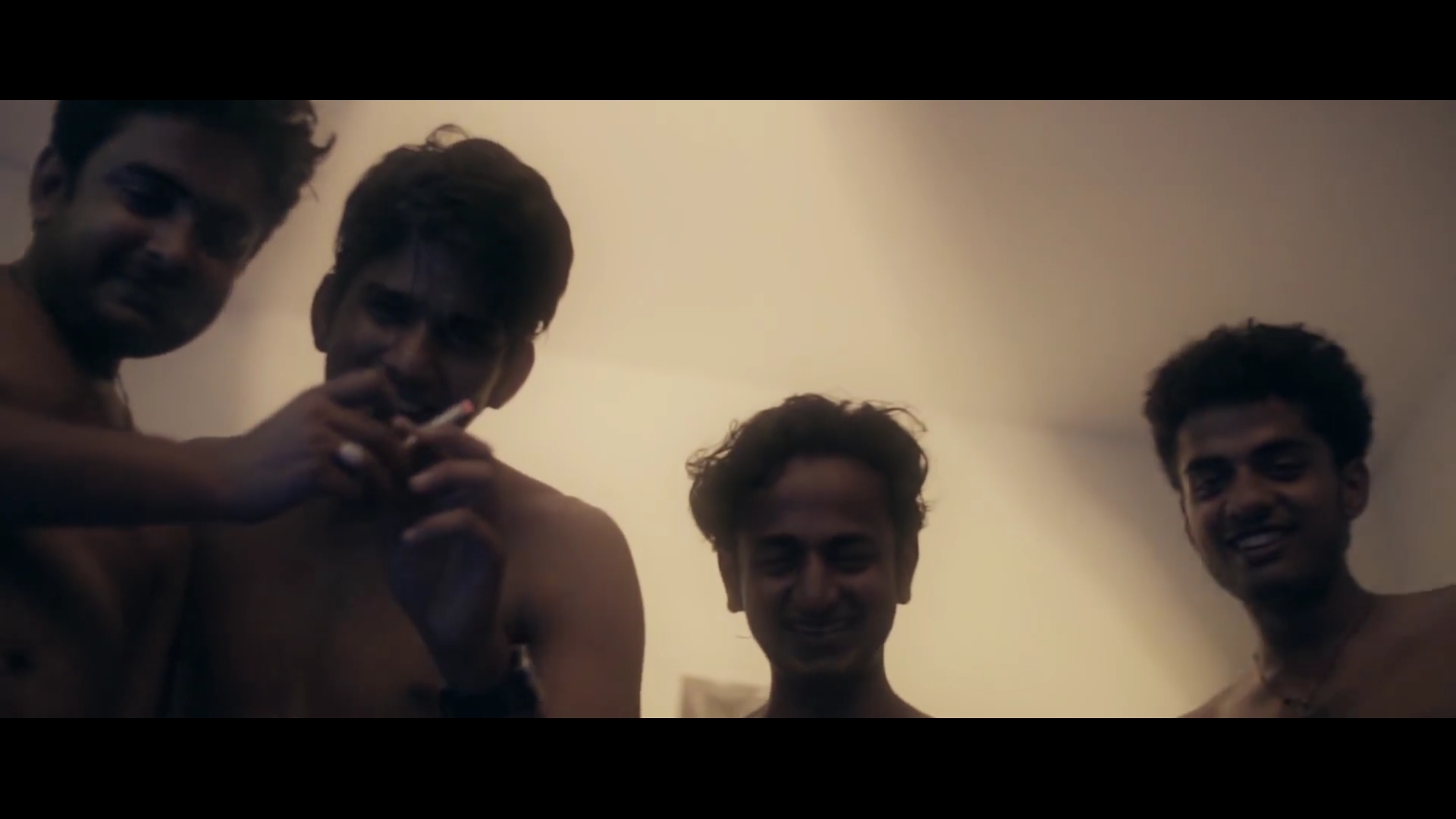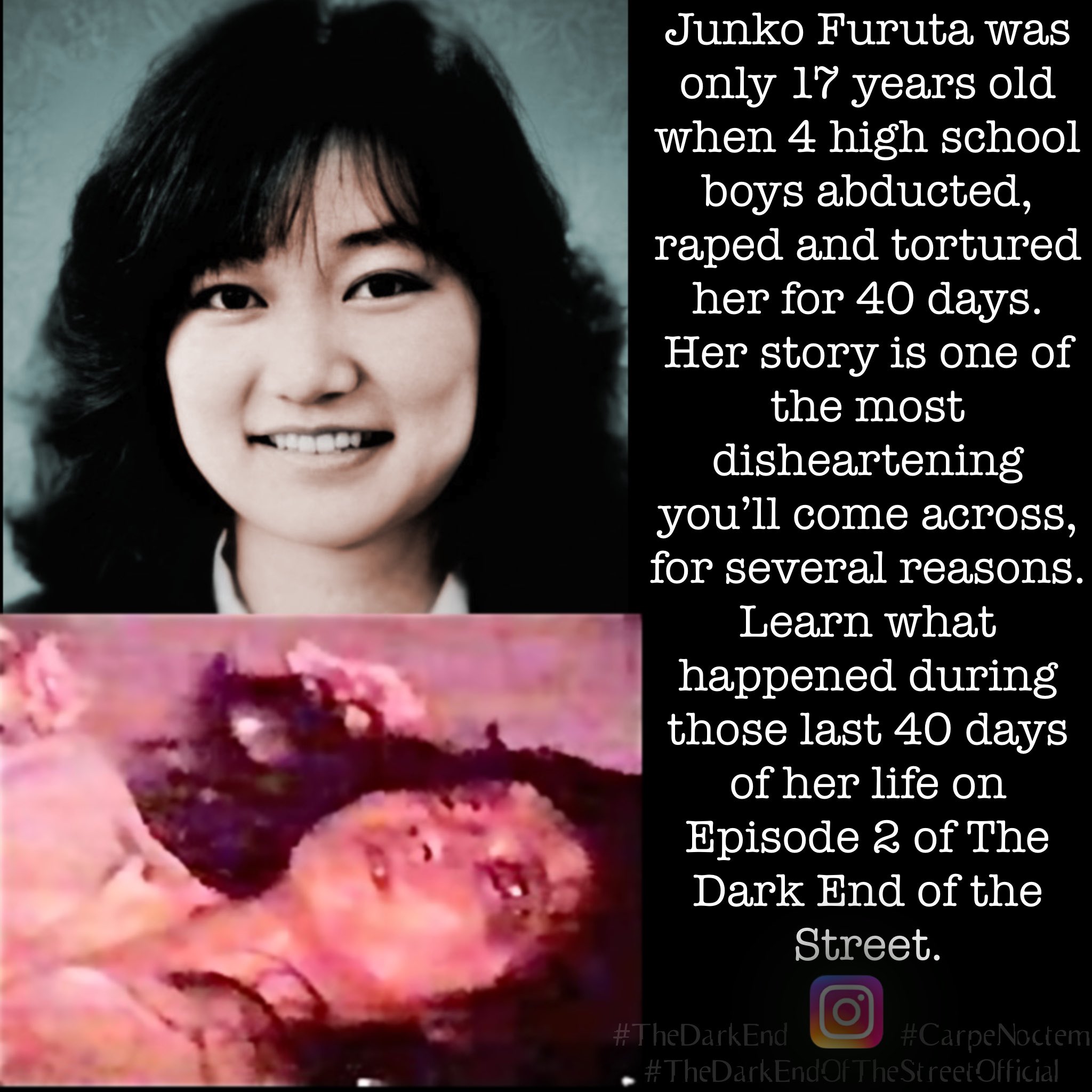The story of Junko Furuta remains one of the most haunting chapters in modern criminal history. Her life, cut tragically short, serves as a powerful reminder of the depths of human cruelty and the urgent need for societal reform. This article dives deep into her life, the harrowing events of her abduction, and the lasting impact her case has had on Japan and the world. With a focus on factual accuracy and sensitivity, we aim to honor her memory while shedding light on this dark chapter.
The tragedy of Junko Furuta is not only a tale of unimaginable suffering but also an examination of the systemic failures that allowed such a crime to occur. By exploring her life and the circumstances surrounding her case, we can better understand the complexities of crime, justice, and the human condition. Her story compels us to reflect on how we can prevent similar tragedies in the future.
This article seeks to provide a comprehensive analysis of Junko Furuta's life, the events leading to her abduction, and the profound impact her case has had on society. Through this exploration, we hope to pay tribute to her memory while offering valuable insights to readers.
Read also:Wes Bentley
Table of Contents
- Biography
- Early Life
- The Abduction
- The Captors
- Media Coverage
- Judicial Process
- Psychological Impact
- Societal Effects
- Long-Term Legacy
- Conclusion
Junko Furuta: A Life Cut Short
Personal Information
Junko Furuta, a 17-year-old high school student from Japan, became the victim of one of the most heinous crimes in modern history. Her life was tragically ended in circumstances that shocked the nation and the world. Below is a summary of her personal details:
| Name | Junko Furuta |
|---|---|
| Date of Birth | November 13, 1967 |
| Place of Birth | Kanagawa, Japan |
| Education | High School Student |
| Date of Death | December 25, 1988 |
Junko Furuta's life and tragic end serve as a poignant reminder of the importance of vigilance, justice, and societal responsibility. Her story continues to inspire discussions about the prevention of such atrocities.
A Life of Promise: Junko Furuta's Early Years
Junko Furuta grew up in Kanagawa, Japan, in a modest but loving family. Known for her academic excellence and artistic talents, she was a beacon of hope and potential for her community. Her early years were marked by strong family ties and a nurturing environment, which made her tragic fate all the more heart-wrenching.
As a high school student, Junko was admired by her peers and teachers alike for her kindness, intelligence, and dedication to her studies. Her passion for art and her ability to inspire those around her made her a beloved figure in her school and community. This section delves deeper into her upbringing, highlighting the qualities that made her a cherished member of her community.
The Unthinkable: The Abduction of Junko Furuta
The abduction of Junko Furuta on November 25, 1988, remains one of the darkest moments in Japanese history. Four high school students, driven by a warped sense of power and control, lured her into their trap after a school sports event. The details of her abduction and the subsequent events are both shocking and deeply tragic.
Key Events Leading to the Abduction
- Junko was deceived into getting into a car under false pretenses, believing she was being offered help.
- She was taken to an abandoned house, where she was held captive for over a month.
- During her captivity, she endured unimaginable cruelty at the hands of her captors.
This section provides a detailed examination of the events leading up to her abduction, offering insight into the circumstances that allowed such a crime to occur.
Read also:Fleur Cates Wikipedia
The Perpetrators: Unraveling the Minds Behind the Crime
The individuals responsible for Junko Furuta's abduction were four high school students whose actions demonstrated a disturbing lack of empathy and moral compass. This section explores their backgrounds, examining the psychological and societal factors that may have contributed to their heinous behavior.
Profiles of the Captors
- Hiroshi Miyashita: The ringleader, known for his manipulative tendencies and desire for dominance.
- Kazuhiro Fujisawa: A troubled youth with a history of delinquent behavior, driven by peer pressure and a desire for acceptance.
- Hideo Sato: Influenced heavily by peer pressure, he played a supporting role in the crime but was equally complicit.
- Masayoshi Nakamura: The youngest of the group, coerced into participating due to intimidation and fear.
Understanding the backgrounds and motivations of these individuals is essential to comprehending the gravity of their actions and the societal context in which the crime occurred.
The Role of Media: Shaping Public Perception
The case of Junko Furuta garnered extensive media coverage, both in Japan and internationally. The Japanese press played a crucial role in bringing attention to the case, highlighting the failures of the justice system and societal norms. The media's portrayal of the events had a profound impact on public opinion and the judicial process.
This section examines the role of the media in shaping public perception and influencing the judicial process. It also explores the ethical considerations surrounding the coverage of such a sensitive and harrowing case.
The Legal Proceedings: Justice Served?
The judicial process surrounding Junko Furuta's case was fraught with controversy and challenges. While the perpetrators were eventually brought to justice, the severity of their sentences sparked widespread debate and criticism. The legal proceedings raised important questions about the treatment of juvenile offenders and the adequacy of the justice system.
Key Outcomes of the Judicial Process
- Hiroshi Miyashita, the ringleader, was sentenced to life imprisonment, reflecting the gravity of his role in the crime.
- Kazuhiro Fujisawa received a 20-year prison sentence, acknowledging his significant involvement in the abduction and subsequent events.
- Hideo Sato and Masayoshi Nakamura were given reduced sentences due to their minor roles and the influence of peer pressure.
This section provides a detailed analysis of the legal proceedings, exploring the implications of the sentences handed down and the broader implications for the justice system.
The Psychological Fallout: A Nation in Shock
The psychological impact of Junko Furuta's case extends far beyond the individuals directly involved. It has left an indelible mark on Japanese society, sparking discussions about mental health, education, and crime prevention. The trauma experienced by the victim's family, the perpetrators, and the wider community underscores the need for comprehensive support systems.
This section delves into the psychological effects of the case, examining the emotional toll on the victims' families, the perpetrators, and society at large. It also highlights the importance of addressing mental health issues and providing support to prevent future tragedies.
Societal Reforms: Lessons Learned from Tragedy
Junko Furuta's case has had a profound impact on Japanese society, leading to significant changes in laws and policies related to crime and punishment. This section examines the societal effects of her case, including:
Policy Changes Inspired by Junko's Case
- Stricter laws regarding juvenile crime, reflecting a growing recognition of the seriousness of such offenses.
- Increased focus on mental health in schools, emphasizing the importance of early intervention and support for at-risk youth.
- Enhanced community programs aimed at providing support and resources for young people, reducing the likelihood of future crimes.
These reforms reflect a commitment to preventing similar tragedies and improving societal conditions for future generations.
A Legacy of Change: Remembering Junko Furuta
Junko Furuta's legacy is one of remembrance and reform. Her case has inspired countless initiatives aimed at improving societal conditions, promoting justice, and preventing future atrocities. Through education, awareness, and advocacy, society continues to honor her memory and work toward a safer, more compassionate world.
This section explores the long-term impact of her story, emphasizing the importance of learning from the past to build a better future. Her memory serves as a powerful reminder of the need for vigilance, empathy, and societal responsibility.
Conclusion: Reflecting on Justice and Responsibility
Junko Furuta's story is a stark reminder of the importance of vigilance, justice, and societal responsibility. By examining her life, the events surrounding her case, and its aftermath, we gain valuable insights into the complexities of crime and its profound impact on society. Her tragic fate compels us to reflect on how we can prevent similar tragedies in the future.
We invite readers to share their thoughts and reflections in the comments section below. Additionally, we encourage you to explore other articles on our site that delve into issues of justice, mental health, and societal reform. Together, we can continue to honor Junko Furuta's memory and strive for a better, more just world.


